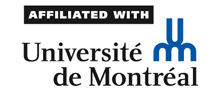By Ignacio Lago (Universitat Pompeu Fabra), Sandra Bermúdez (Universitat Pompeu Fabra), Marc Guinjoan (Universitat Autònoma de Barcelona), and Pablo Simón (Universidad Carlos III de Madrid).
Research question
Social fractionalisation has been omitted in most influential cross-sectional studies on turnout, and when it has been included, evidence is, at best, mixed, The purpose of this article is to revisit the relationship between social fractionalisation and turnout and also to delve into the mechanisms that may explain this link.
Arguments
Previous literature stems from the under-specification of the mechanisms that link social fractionalisation with electoral participation. In particular, to date, the literature has not considered the potential direct and indirect effects of social diversity on turnout, which may eventually explain the lack of consensus both from the theoretical and the empirical point of view. Our argument is that the causal mechanism linking social fractionalisation and turnout may be explained directly by the lesser attachment of the minority group to the community and/or indirectly via the lesser provision of civic duty among the minority
Data
We test our arguments empirically by using Franklin’s models, which account for the level of turnout in lower chamber elections in 22 countries from 1945 to 1999, but we add ethnic, linguistic and religious fragmentation to the specifications. The results indicate that turnout is negatively correlated with ethnic and linguistic fragmentation, but not with religious diversity. Second, as this aggregate association in not enough to pin down the origin of this finding, we then use individual data from electios in Catalonia (Spain) and Quebec (Canada), two multilingual territories, to examine to what extent social fractionalisation affects voting and the sense of duty to vote. By changing the majority ethnic group across regional and national elections, we show that those individuals who are relatively more averse to mixing with others different to themselves have a lower propensity to vote and are less likely to construe voting as a civic duty when they belong to the minority group.
Findings
We found that ethnic and, above all, linguistic heterogeneity are negatively correlated with turnout (see Figure 1). These results open the door for us to delve into the mechanisms that may explain this relationship at the aggregate level. For that purpose, we have conducted an individual analysis to test how civic duty, one of the main motivations that bring individuals to participate in elections, may affect turnout. Relying on individual data from Catalonia and Quebec, we have shown that people are more prone to think that voting is a moral obligation when the preferences of the majority are similar to their own. Thus, in national elections – in contrast to regional ones – individuals who feel only or more Catalan/Quebecer than Spanish/Canadian have a lower propensity to consider the vote as a civic duty than their counterparts (dual-identity individuals and the ones who feel only Spanish/Canadian or more Spanish/Canadian than Catalan/Quebecer). Additionally, while the impact of heterogeneity on voter turnout in Quebec is mainly direct, in Catalonia it is indirect through civic duty (see Figure 2). These mixed results concerning the direct and indirect effect of heterogeneity on turnout suggest that further research should take into account the role played by the specific context in which elections are held.
Figure 1: The impact of ethnic and linguistic fractionalisation on turnout
Figure 2: Expected civic duty and voter turnout in Catalonia and Quebec
Implications
The composition of societies makes a difference for civic and turnout. We show that those relatively more averse to mixing with others who are different to themselves have a lower propensity to vote and are less likely to construe voting as a civic duty when they belong to the minority group.
For more information, see Lago, Ignacio, Sandra Bermúdez, Marc Guinjoan, and Pablo Simón. “Turnout and Social Fractionalisation.” Politics, DOI: 10.1177/0263395716686598.

